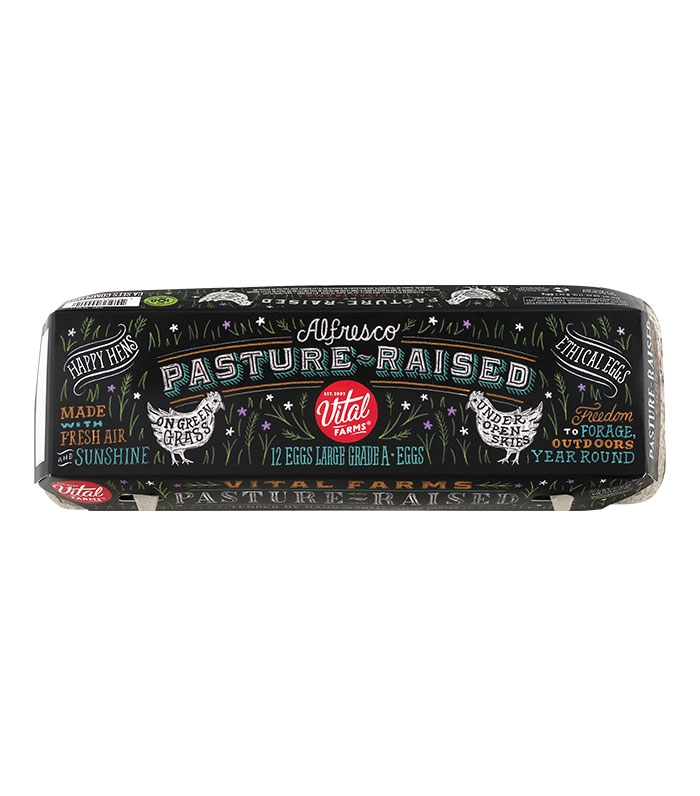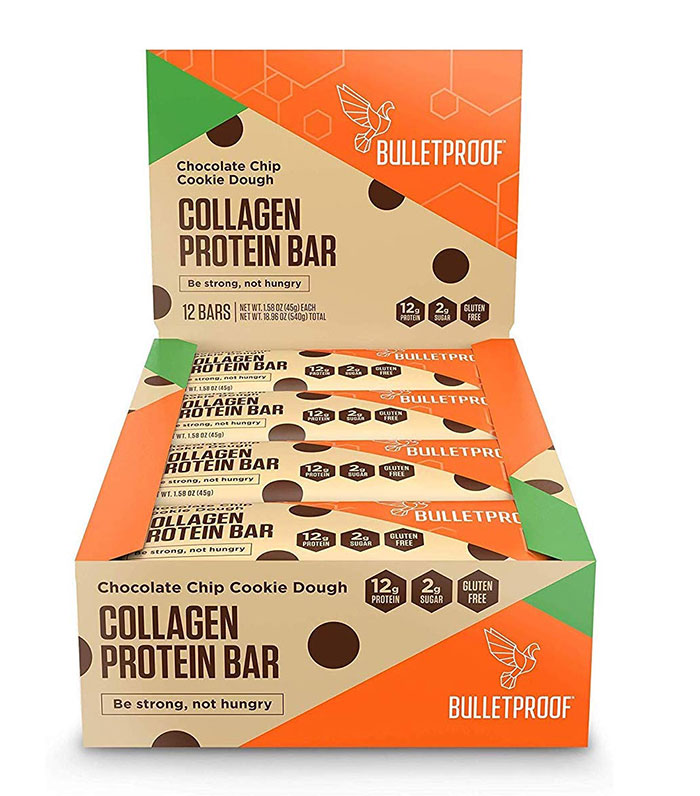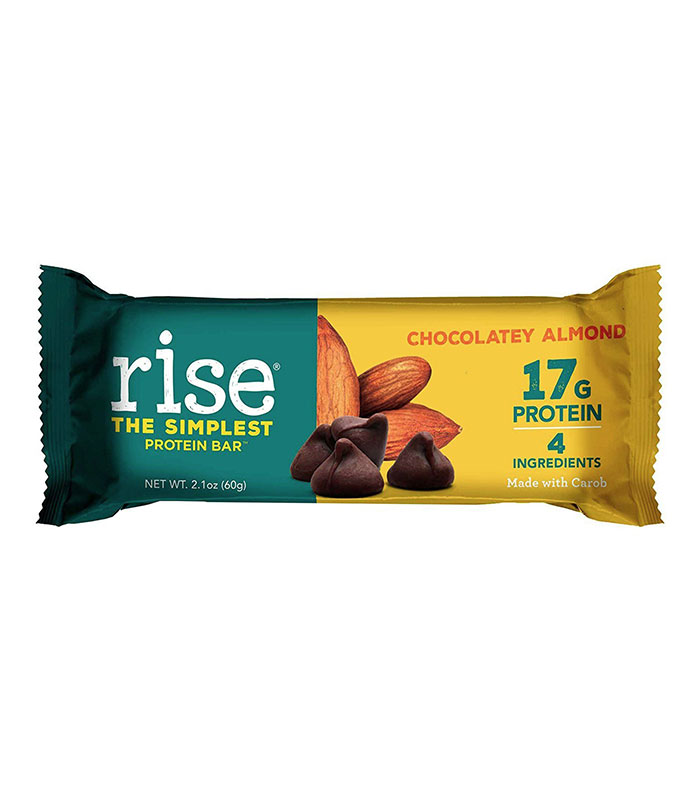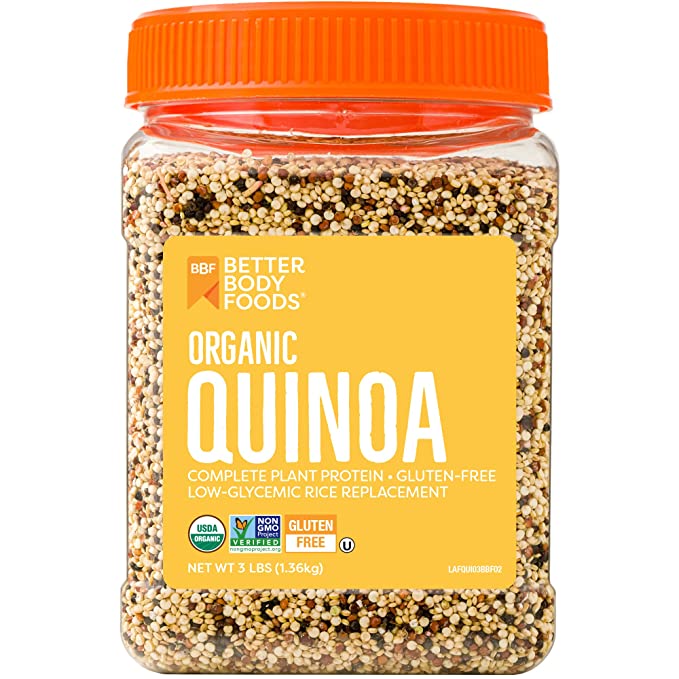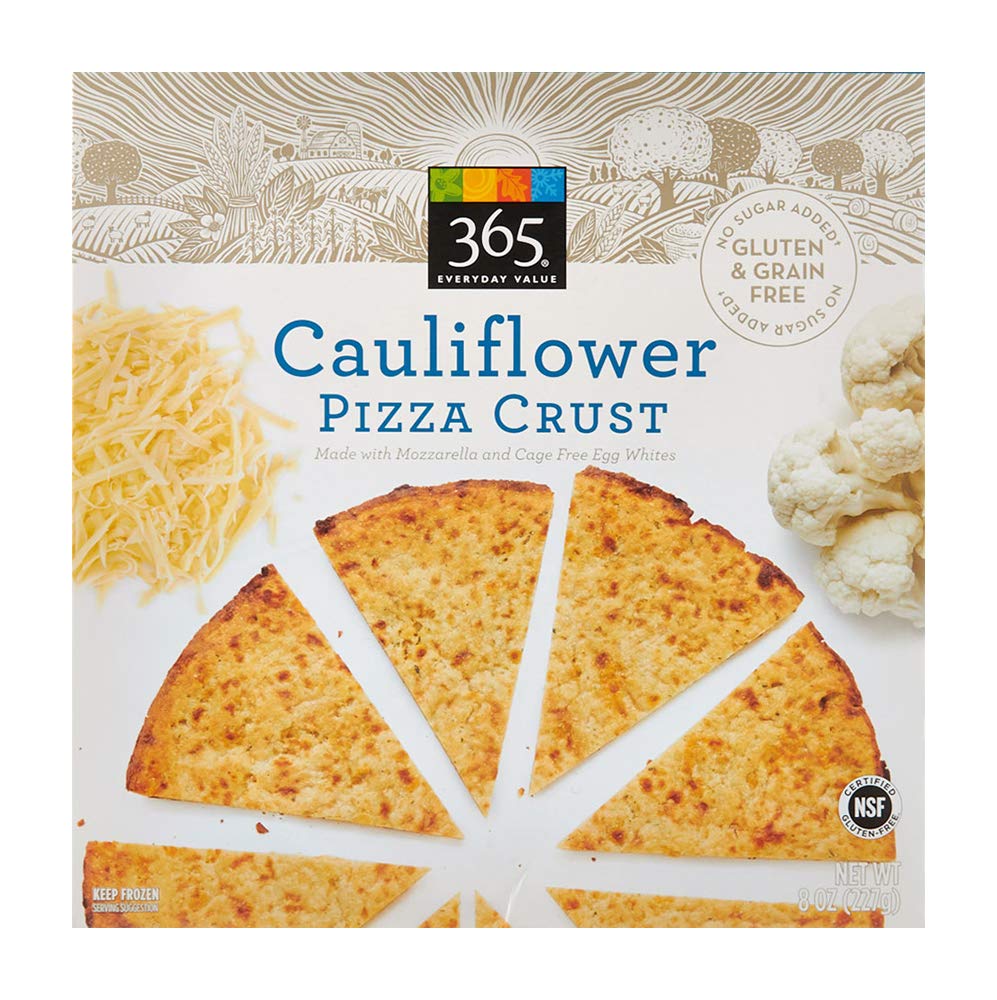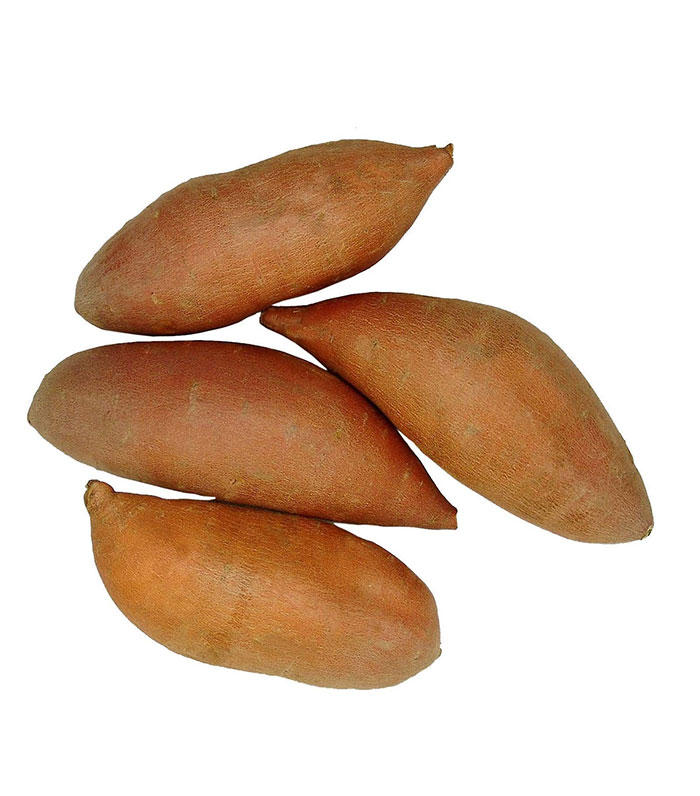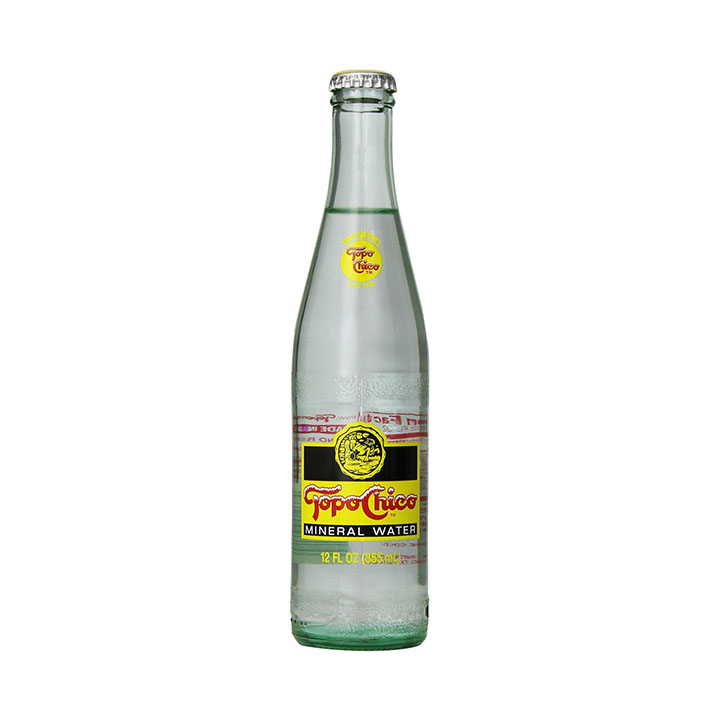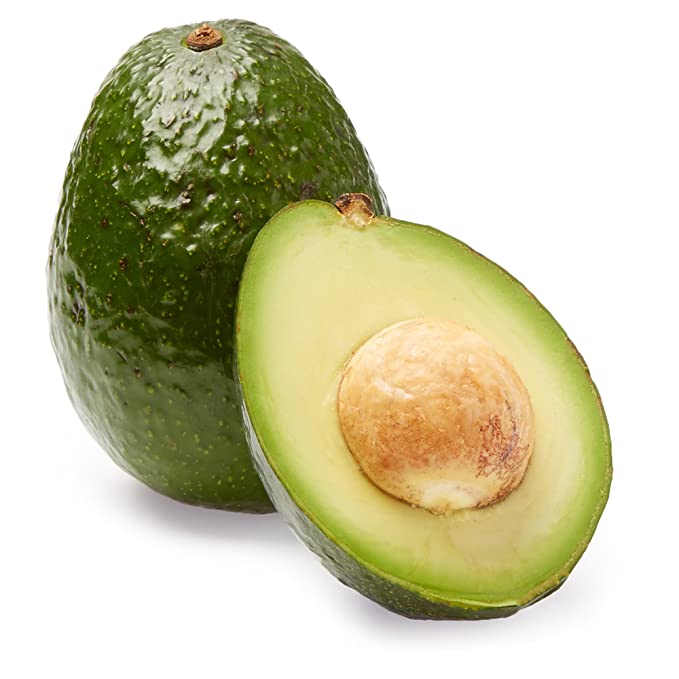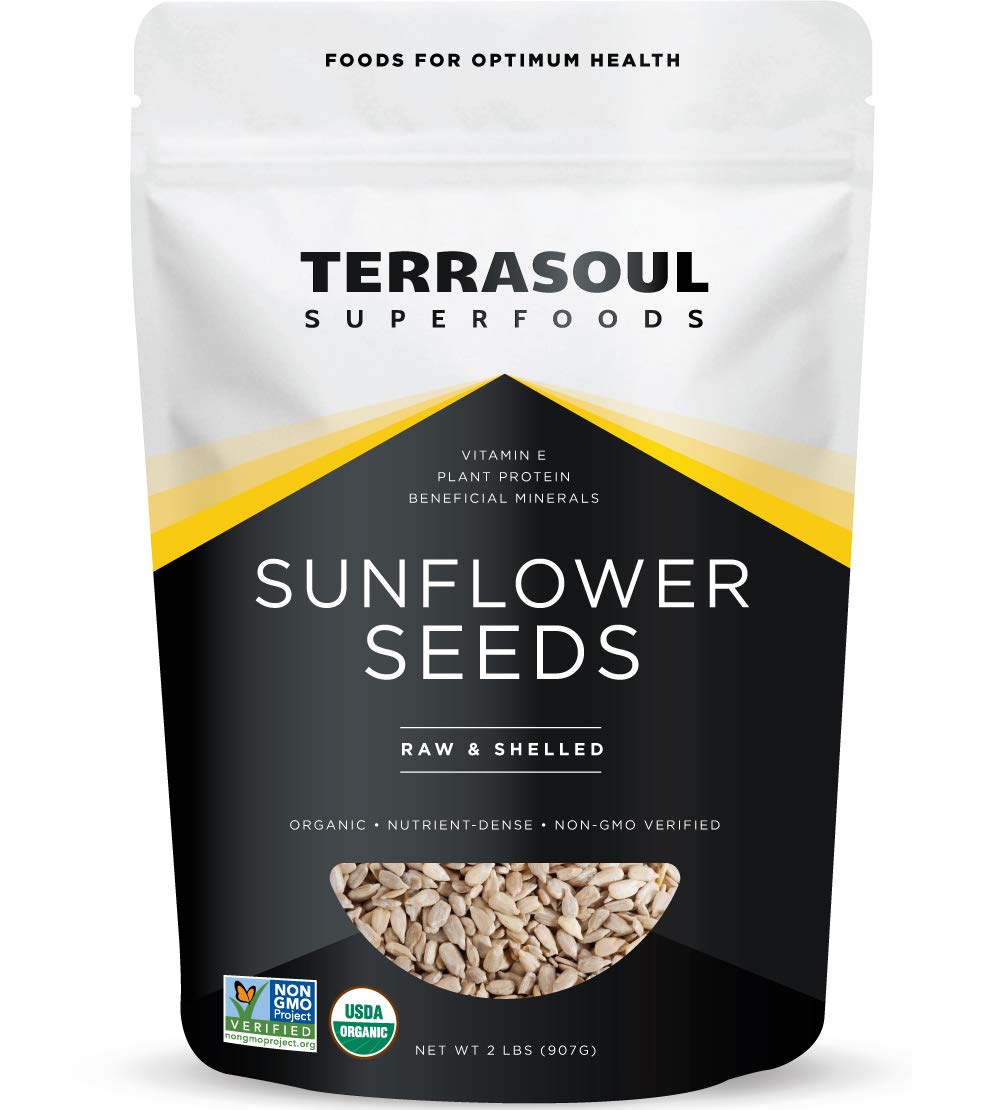These "Healthy" Foods Are Actually Scams
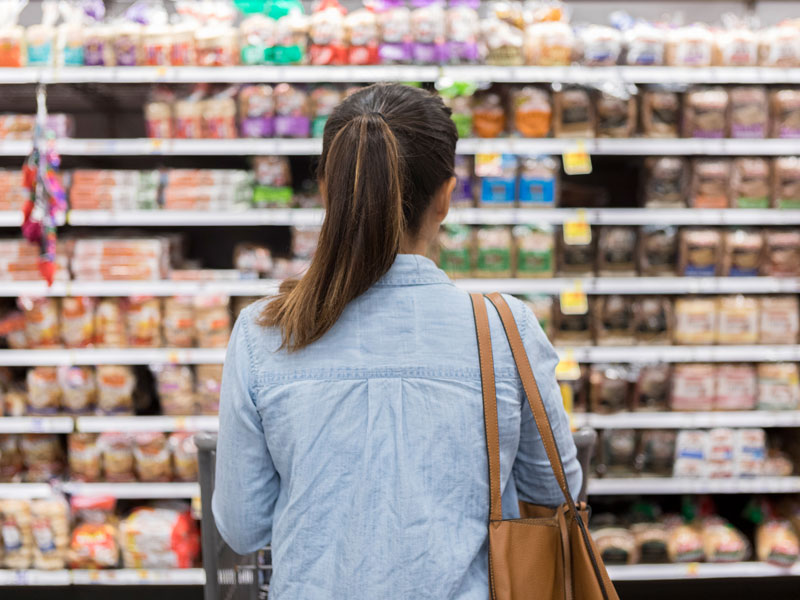
We hate to be the bearer of bad news, but unfortunately, some "healthy" foods out there aren't actually healthy at all. You could think you're filling your grocery cart with nutritious items, but you might be buying into some scams and filling your body with extra sugar and chemicals. I know, I know: You try to do something good for yourself, like eating well, and of course there's a catch. It's annoying, but don't worry because it's not all your fault. You can blame a lot of it on smart packaging and marketing.
"There are many different nutrient content and health claims out on shelves these days! It is hard to keep up and I don't blame the consumer," says Yasi Ansari, MS, RD, CSSD, a national spokesperson for the Academy of Nutrition and Dietetics. "From natural to organic to other nutrient content and health claims, it's important for consumers to be well informed, educated, and to take control and read labels."
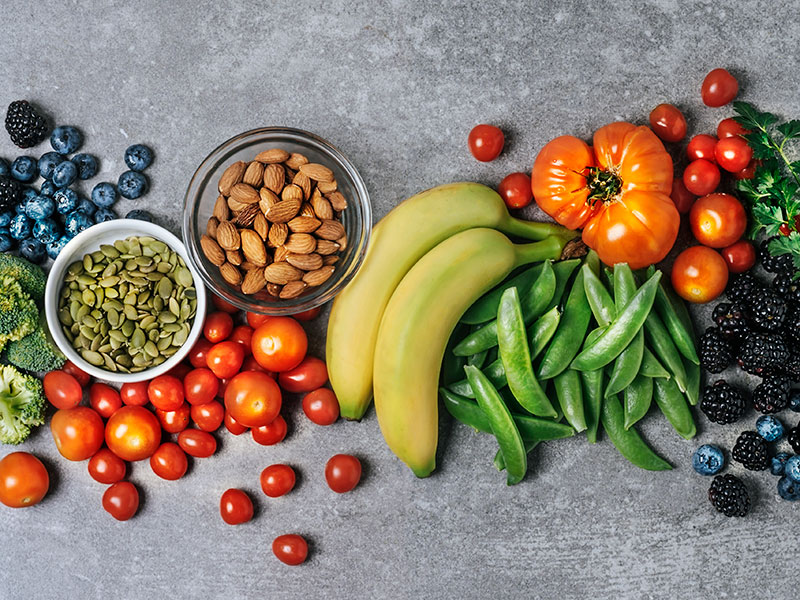
Where do you even start? Well, all of the nutritionists we spoke to for this story said it all comes down to being vigilant about reading labels. "Just because something says organic does not mean it's healthy. We want to make sure when we are reading labels that we are looking for only ingredients we recognize. If you don't recognize a food ingredient, your body will not either," says Samantha Franceschini, MSCN, a nutritionist and health coach at Parsley Health.
Additionally, she recommends focusing on the types of whole foods you are buying (like produce) and where they were grown, if they're organic, and if they are high in pesticides. "Not all strawberries are created equal, and it's important to buy organic. Not all eggs are created equal, and it's important to look for a high-quality brand, like Vital Farms, for good quality eggs."
Another label item to watch out for is sugar, which is added to a lot of "health" foods. It's tricky because sugar has all different kinds of names, Nathalie Rhone, MS, RD, CDN, founder of Nutrition by Nathalie, points out. "When reading the label look out for ingredients ending in '-ose' like dextrose, glucose or maltose, as well as high fructose corn syrup, rice syrup, barley malt, agave nectar… If you don't recognize the ingredient or if the list of ingredients is super long, [your] best bet is to stay away! You can also check the product for grams of added sugar, with the goal of finding one that contains zero."
If you are consuming items with added sugar, Ansari recommends limiting your intake to "less than 10% of your daily calories according to the Dietary Guidelines for Americans. For a 2000-calorie diet that means no more than 200 calories a day should come from added sugars (about less than 50 gm/day)." But this recommendation might depend on your medical history, so you'll want to check with your doctor or a registered dietitian first.
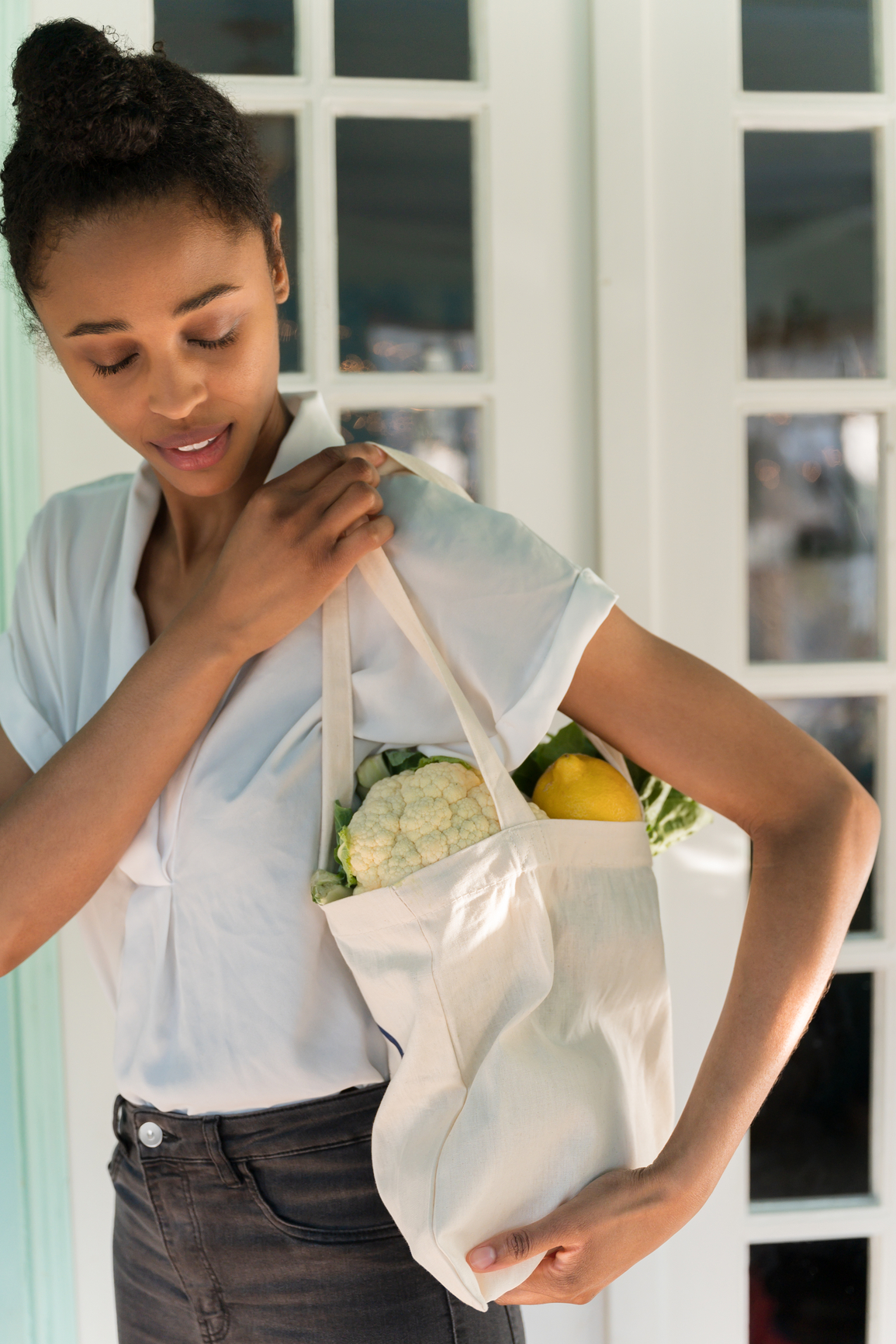
Now that you know that reading labels is one of the most important factors in healthy eating, what exactly are some "healthy" foods to think twice about? Nutritionists shared their picks below—but keep in mind that these are recommendations. We're not saying to eliminate these completely from your diet, but be smart about which brands and ingredients you choose. And of course, you'll want to consult with your doctor first and foremost, since everyone has a different health history and needs.
Granola
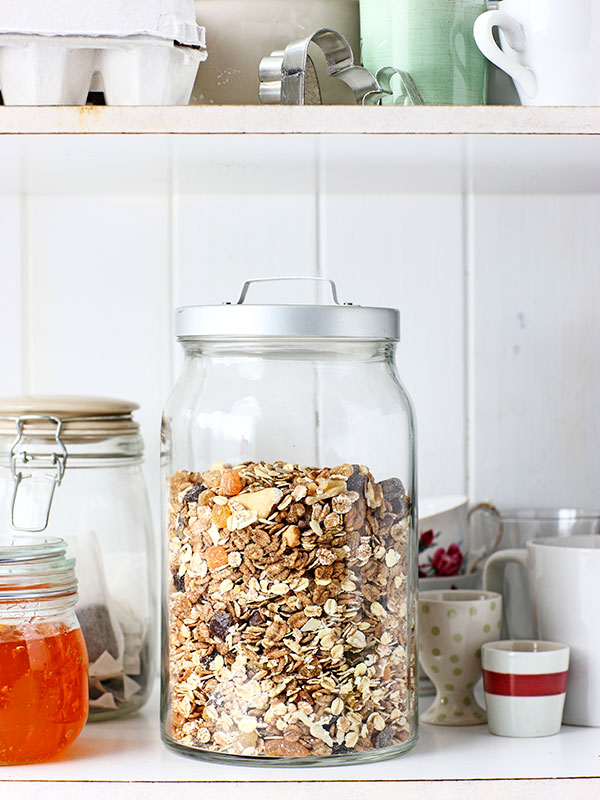
"Granola is often associated with nature, hiking, and the outdoors, so it's no surprise that it's thought of as a healthy choice," says Amy Shapiro, MS, RD, CDN, founder and director of Real Nutrition. "However, most granola offers very little nutrition and is actually quite unhealthy. Most are sweetened with multiple types of sugar and laden with fat and calories. Plus, people tend to overestimate the amount of granola they consume." If you need your granola fix, check the labels when choosing, and limit your consumption.
Fruit Juice
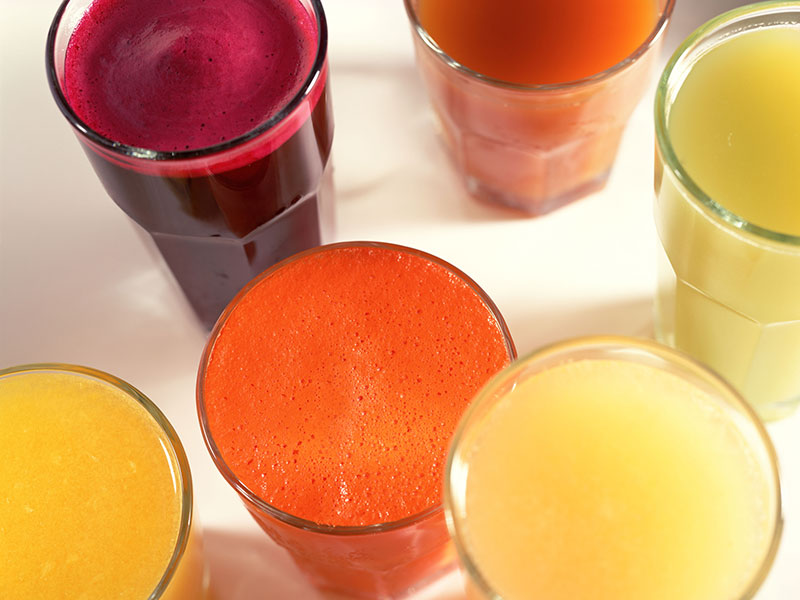
It can be loaded with sugar, so watch out and maybe eat a whole fruit instead. "Fruit juice is something I tell my clients to avoid as well—even if they are juicing their own organic fruit," says holistic nutritionist and cleanse expert Elissa Goodman. "Drinking a glass of orange juice is equal to drinking the juice of three or four oranges all at once. Without any dietary fiber, the fructose in fruit juice gets absorbed extremely rapidly by our cells and causes our blood sugar levels to spike. This can lead to a host of issues."
Protein Bars
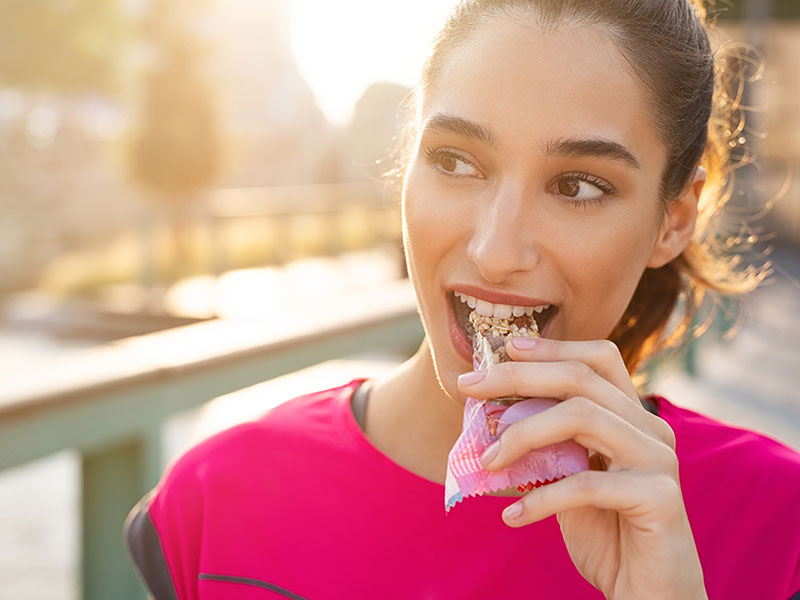
This was a popular response when we polled our experts. "In this case, the word 'protein' is super deceiving," Shapiro says. "Though touted as a convenient snack choice, most protein bars are overly processed and loaded with artificial ingredients and tons of sugar. Often, protein bars are really just candy bars with added processed protein."
Behavioral health advisor, Kelley Hoag, MS, founder of Root to Rise, suggests taking a look at the ingredients and deciding for yourself, but she also recommends Bulletproof and Rise bars as her go-to choices.
Gluten-Free Products
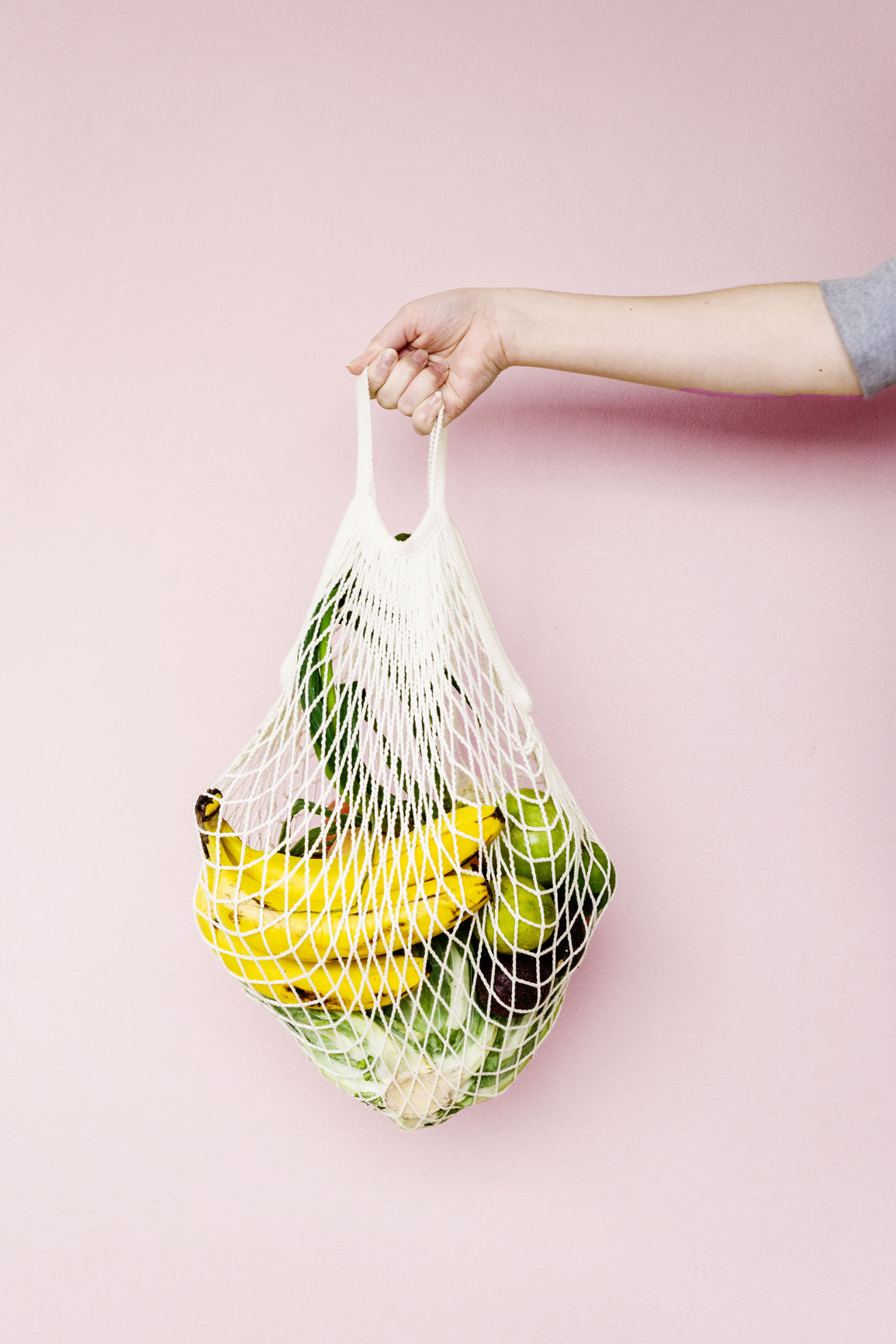
Yes, it's true, but you don't have to completely say goodbye to them. Just choose wisely (are we sounding like a broken record yet?). "You must check the ingredients of these products [because] a lot of them have added binders and fillers that can cause digestive upset," says dietitian Farah Fahad, MS, RDN.
Adds Ansari, "It does not mean the product is automatically healthy. It's important to note that it can compromise nutrition if the diet is not well-balanced. When gluten is removed during food processing, manufacturers may add in more ingredients like salt, sugar, and other starches to add more flavor to the product. Also, packaged gluten-free products may be lower in fiber and B vitamins than gluten-containing grains."
When buying gluten-free products, Ansari recommends looking for ones that are lower in added sugars and for foods with at least three grams of fiber per serving. "Choose gluten-free products that are nutrient-dense and in their whole form such as quinoa, brown rice, veggies, beans, and sweet potatoes. Also, connect with a registered dietitian and see if following a diet low in gluten is right and necessary for you," she says.
Yogurt
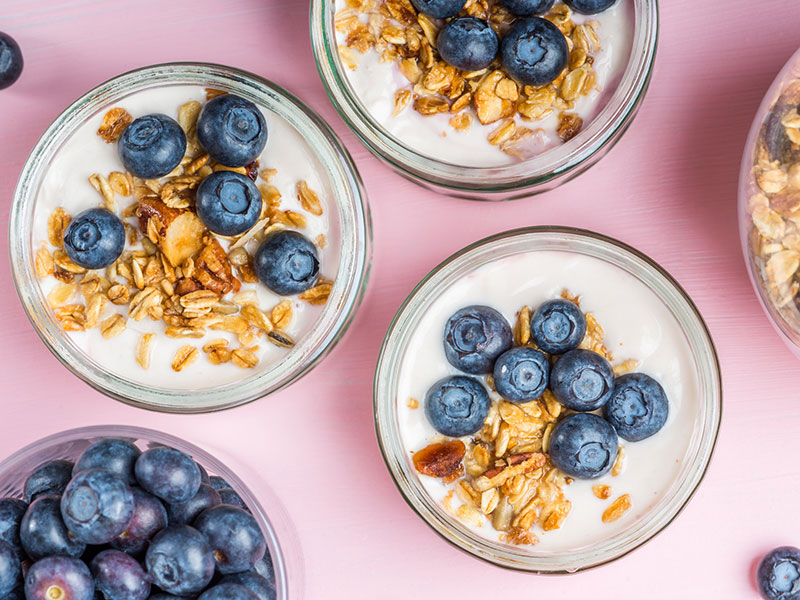
"With so many different options on the market, it's easy to get overwhelmed when choosing the right kind of yogurt. Although yogurt offers calcium and protein, flavored yogurt is often filled with sugar and sweeteners that negate the health benefits that otherwise could have been provided," warns Shapiro.
Diet Soda
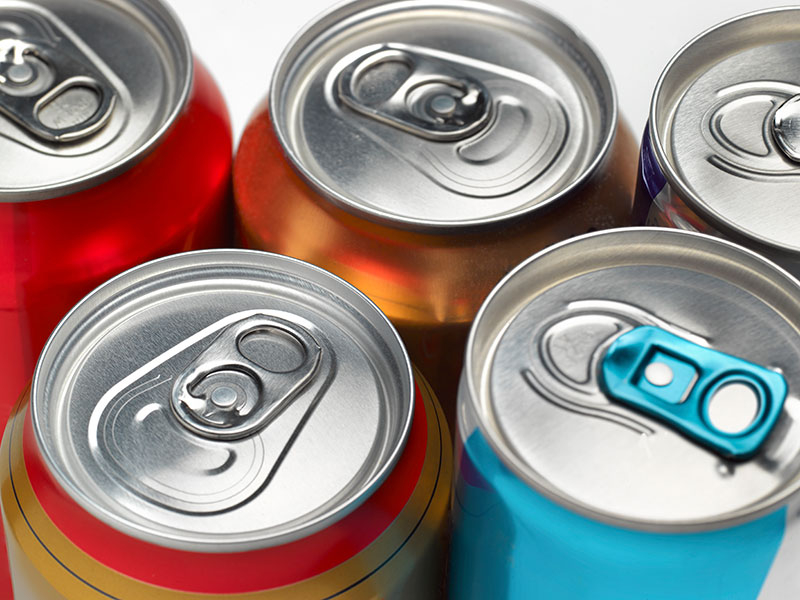
This one you might already know, but it's still important to note. "[It's] not a health food and not healthy at all. Artificial sweeteners are horrible for your gut, and aspartame is toxic to the brain," Fahad says.
Processed Vegan Foods
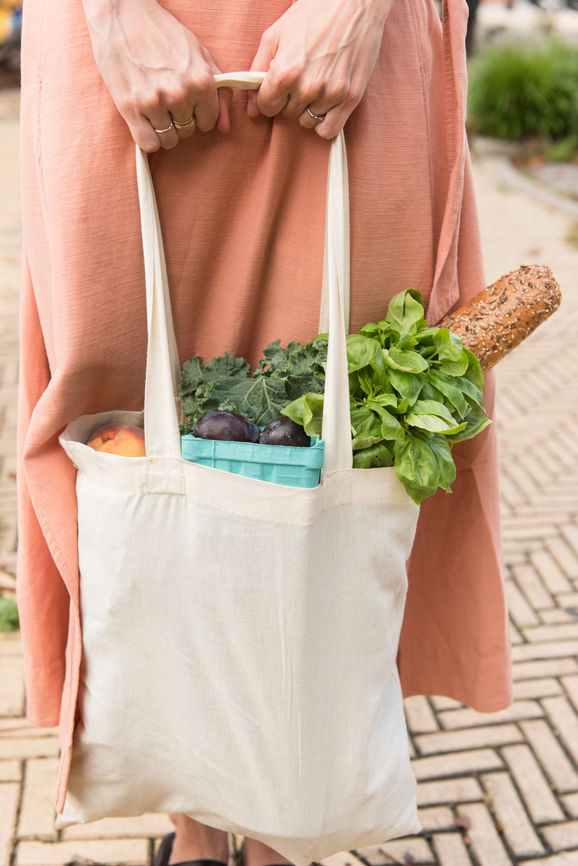
This concern is similar to gluten-free products. "Be mindful of processed vegan foods," Goodman says. "Today, many people believe that just because a food is vegan, it is healthy. However, lots of plant-based products on the market are ultra-processed and filled with unnecessary fillers." Again, check the ingredients list before consuming.
Salads
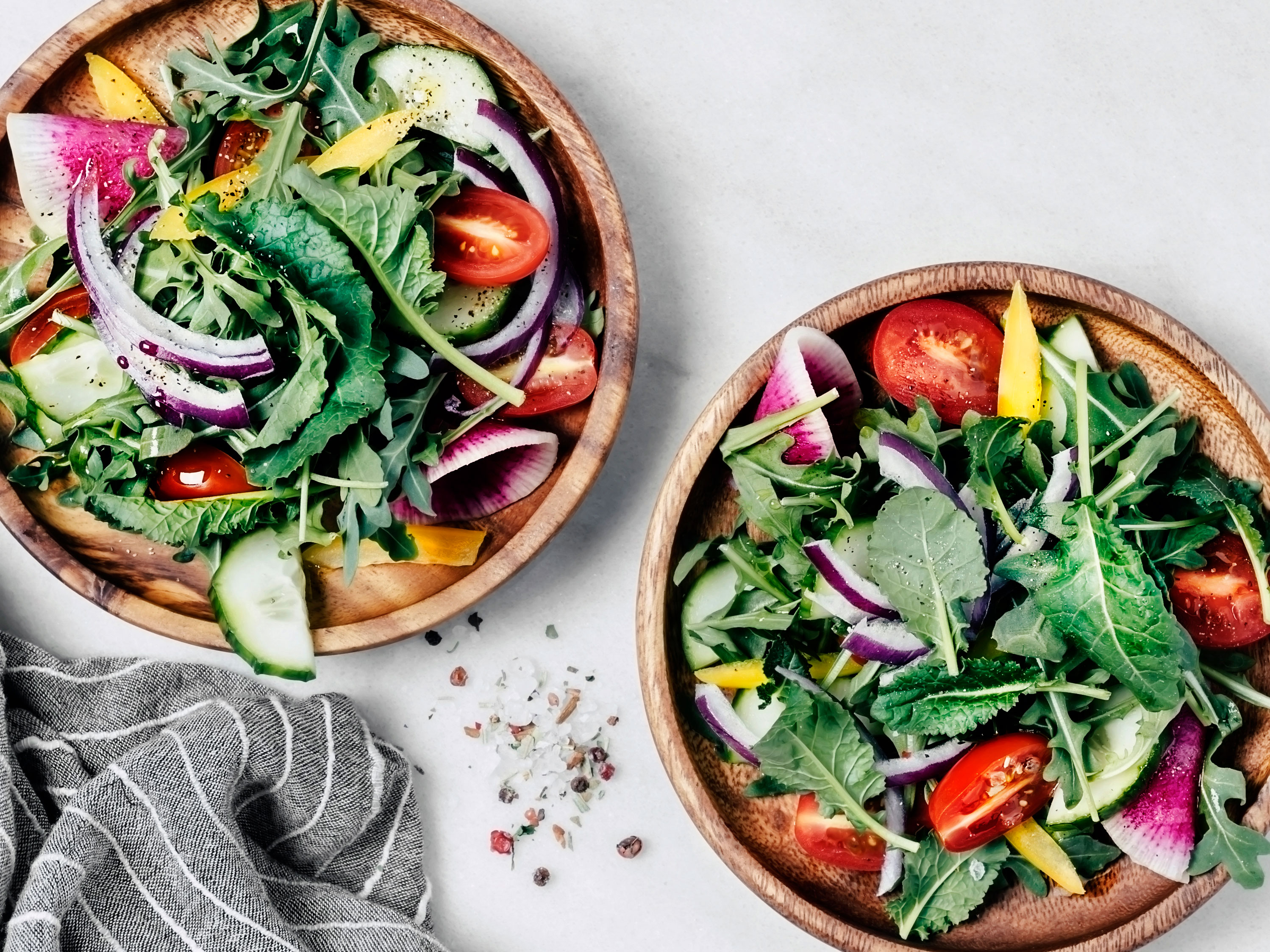
Yes, you read that right. But we're not saying you should ditch salads altogether, it's all about what you put in them. "Salads have a bad reputation for being a lame diet must-eat. Well, it's true, many salads are boring and not very nutritionally dense," Hoag says. "If you're going for a salad, opt for one with cruciferous veggies for fiber, protein, and healthy fats like seeds or avocado. This way, you'll actually feel satisfied."
On that same note, you could think you're being healthy by eating a salad, but if there is more cheese, croutons, and dressing than there are greens, you might be consuming a lot more calories than you intended.
Next: 9 Sneaky Things Nutritionists Say Could Sabotage Your Metabolism
This article was originally published at an earlier date and has since been updated.
This article is provided for informational purposes only and is not intended to be used in the place of advice of your physician or other medical professionals. You should always consult with your doctor or healthcare provider first with any health-related questions.
Sarah is lifestyle writer and editor with over 10 years of experience covering health and wellness, interior design, food, beauty, and tech. Born and raised in Los Angeles, she attended New York University and lived in New York for 12 years before returning to L.A. in 2019. In addition to her work at Who What Wear, she held editor roles at Apartment Therapy, Real Simple, House Beautiful, Elle Decor, and The Bump (sister site of The Knot). She has a passion for health and wellness, but she especially loves writing about mental health. Her self-care routine consists of five things: a good workout, “me” time on the regular, an intriguing book/podcast/playlist to unwind after a long day, naps, and decorating her home.
-
 It's Time to Get Our Nutrition in Check for Summer—This App Is Making It Easy
It's Time to Get Our Nutrition in Check for Summer—This App Is Making It EasyThe recipe ideas are endless.
-
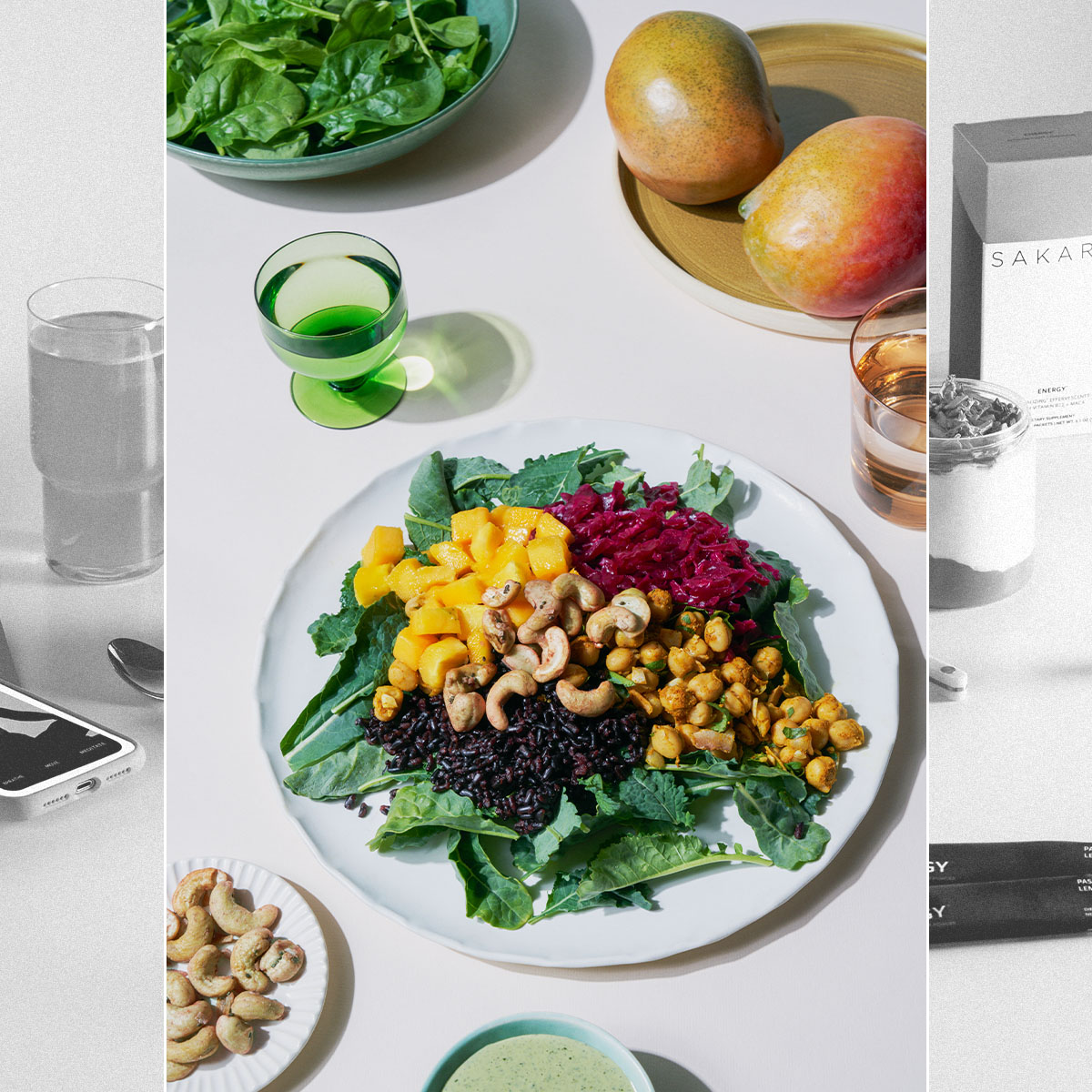 Bella Hadid and Gwyneth Paltrow Apparently Love Sakara Life, so We Tried It for 30 Days
Bella Hadid and Gwyneth Paltrow Apparently Love Sakara Life, so We Tried It for 30 DaysHere are our honest thoughts.
-
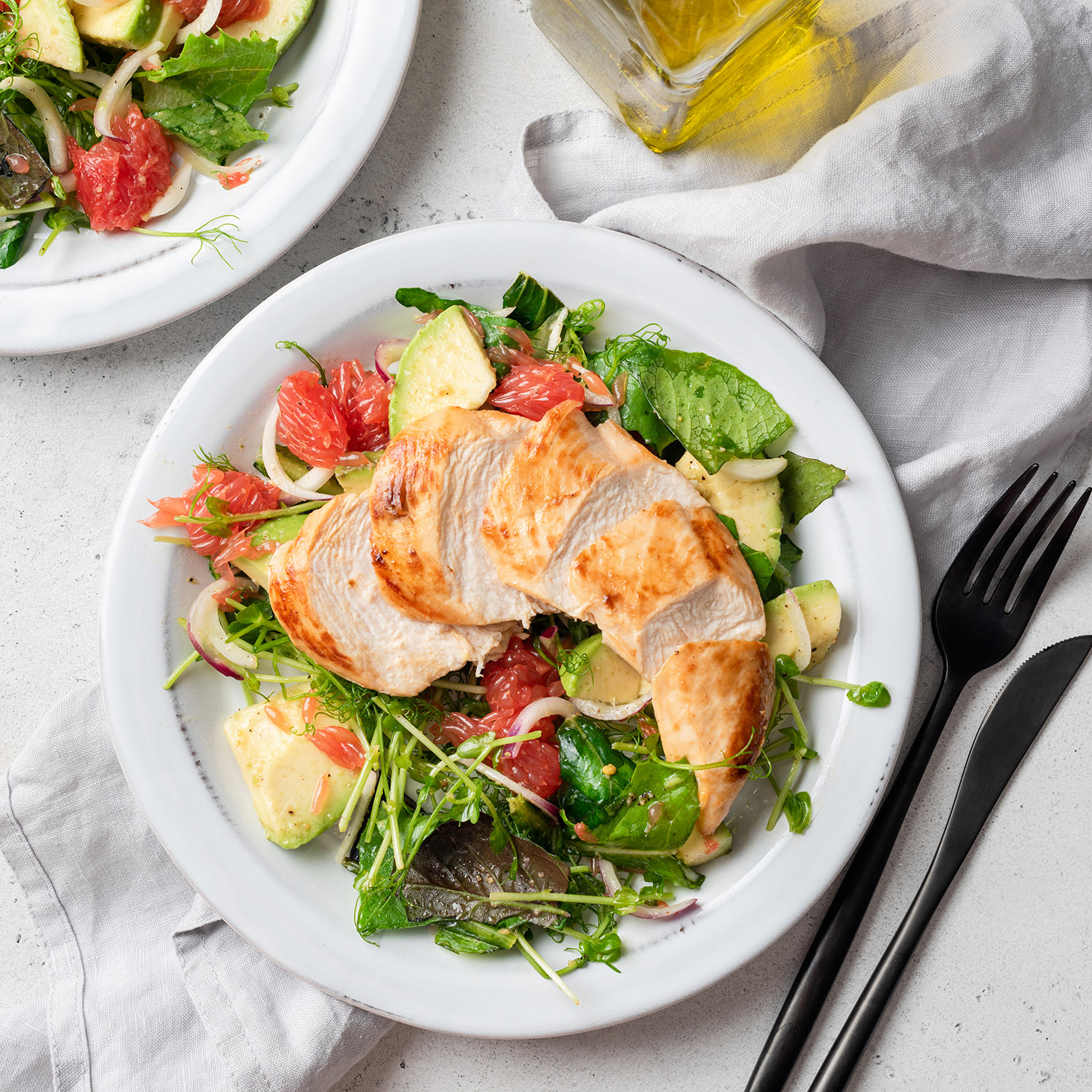 The 6 Warning Signs You're Not Getting Enough Protein
The 6 Warning Signs You're Not Getting Enough ProteinAnd what to eat to up your intake.
-
 Everything This Professional Ballet Dancer Eats to Fuel Her for Performances
Everything This Professional Ballet Dancer Eats to Fuel Her for PerformancesHer grocery staples include high-quality French butter.
-
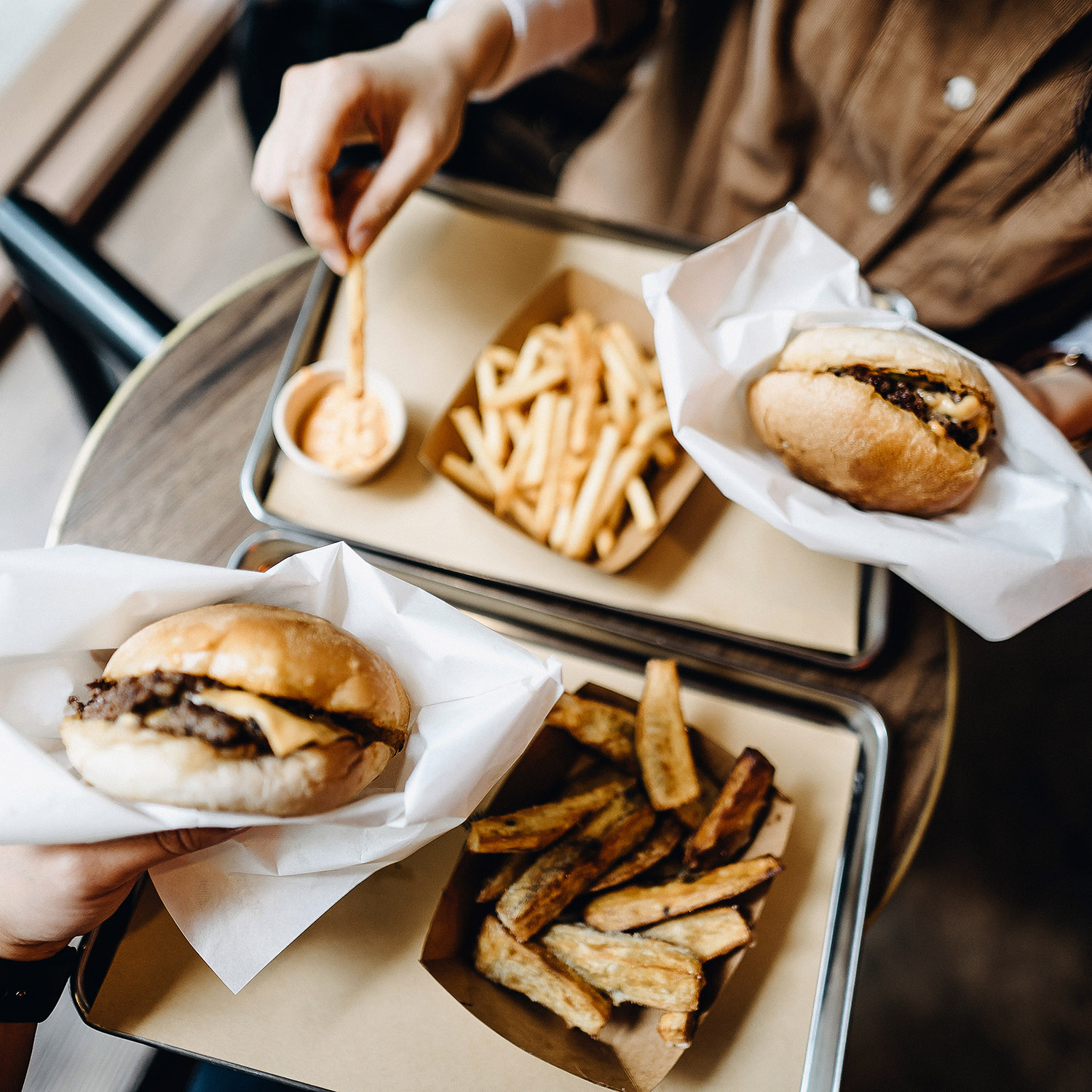 These 8 Foods Are the Worst for Rosacea—Here's What to Eat Instead
These 8 Foods Are the Worst for Rosacea—Here's What to Eat InsteadControl those flare-ups.
-
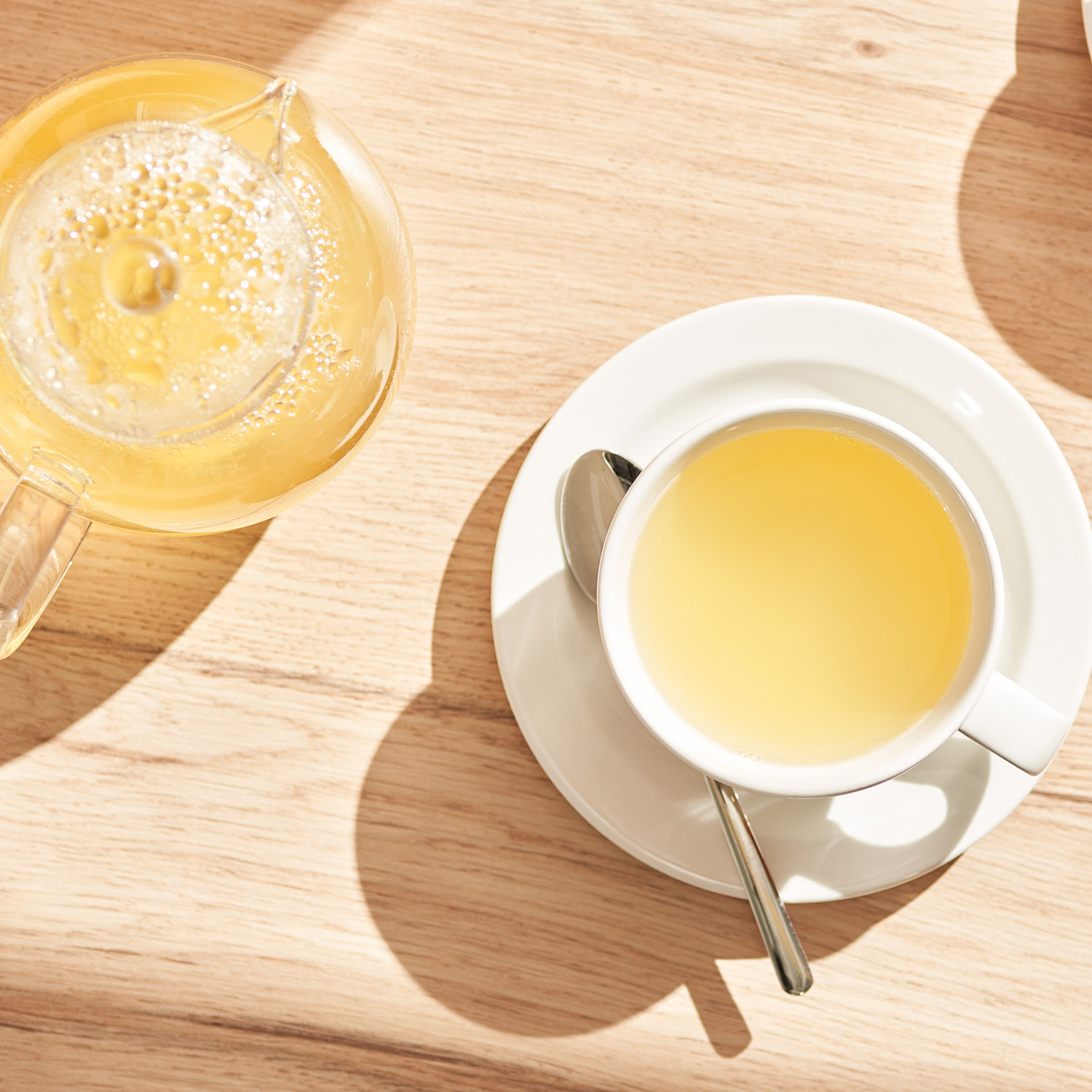 15 Things That Cause Bloating and How to Get Rid of It ASAP
15 Things That Cause Bloating and How to Get Rid of It ASAPTry these.
-
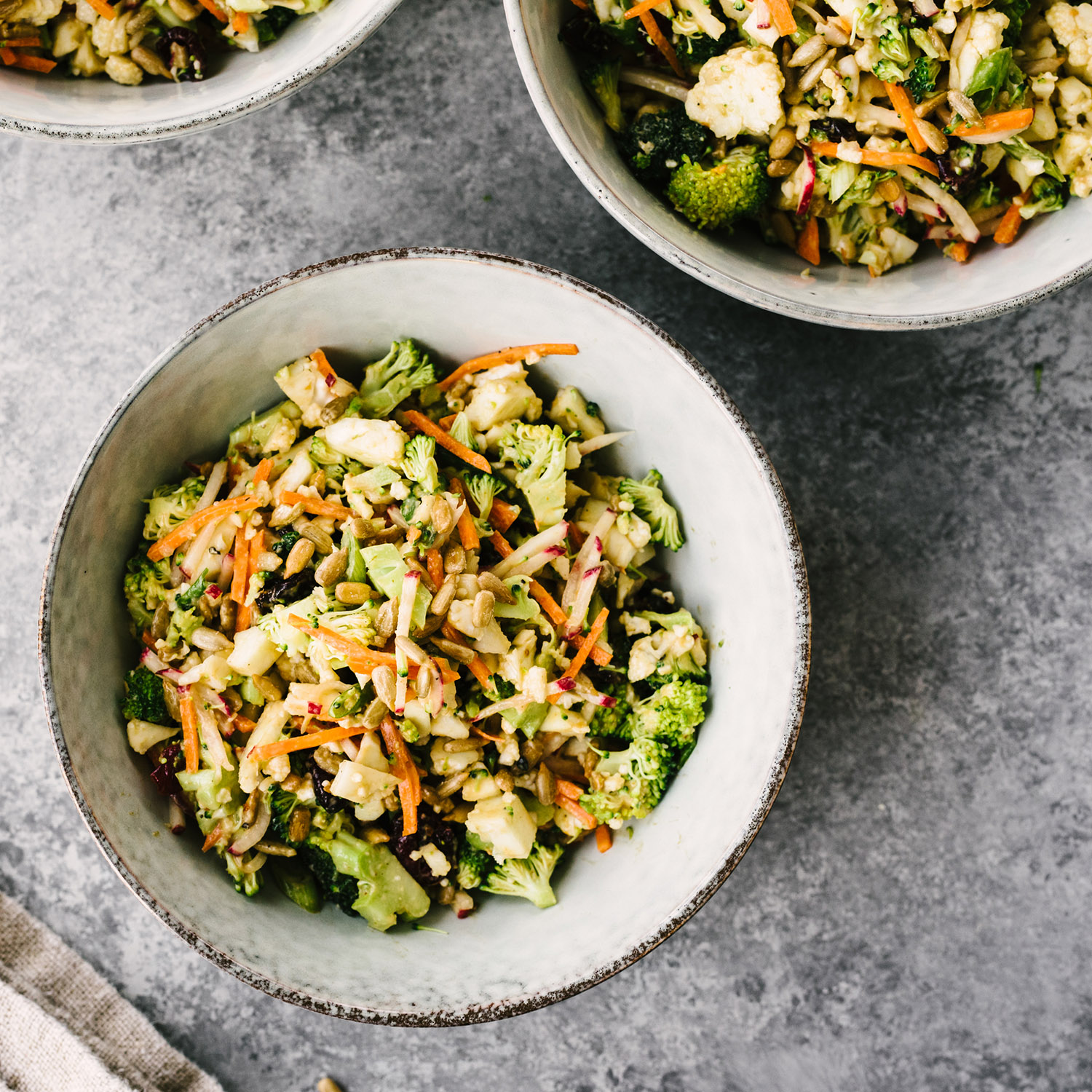 Is the Alkaline Diet Overhyped? What Experts Want You to Know
Is the Alkaline Diet Overhyped? What Experts Want You to KnowHere's how it works.
-
 I'm an Imperfect Dietitian and My Key to Eating Healthy Meals Is Convenience
I'm an Imperfect Dietitian and My Key to Eating Healthy Meals Is ConvenienceTake a peek at my weekly grocery staples.
